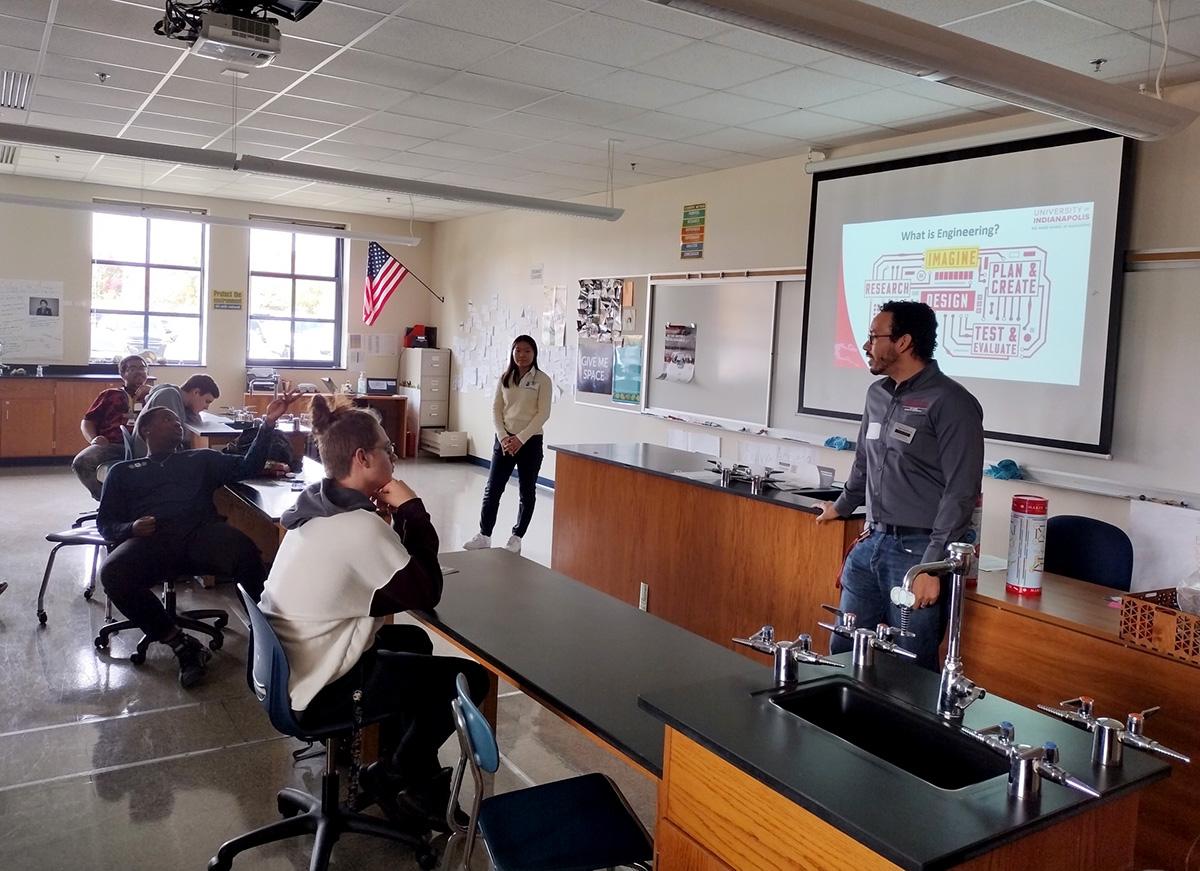Benefits & Requirements for Teachers
Curriculum and Support
The E4USA curriculum is holistic. It is a free, online guide that includes opportunities for teacher personalization and autonomy focused on student decision-making. The curriculum is a scaffold to teach engineering awareness, engineering in society, and engineering design practices through iterative design challenges, yet it invites teachers to incorporate their students’ interests, local needs, community partners, and personal expectations. The E4USA curriculum scaffolds and includes room to leverage each teacher’s own curriculum, tools, knowledge, and skill. It is, at its core, a set of rubrics and activities designed to promote engineering learning progressions. E4USA will also promote exceptional students and teachers through a national platform showcasing best practices and distinguished achievement.

Teacher Professional Development and Community of Practice
Professional Learning (PL) will be a critical piece of E4USA. Three webinars, which are slated to occur in mid-April, will launch the series of PLs. These webinars aim to introduce teachers to the E4USA mission and the Curriculum, as well as provide a foundation for the summer workshop. Over the summer, teachers will gather at their partner institution’s campus for a face-to-face, interactive workshop that will provide teachers with meaningful opportunities to experience the course and also enhance both pedagogical and assessment skills. A repertoire of online resources will also accompany the workshop. To ensure continued support, teachers will also receive a series of timely and responsive PLs throughout the academic year to further help with the implementation of the E4USA curriculum. The PL workshops will also establish a community of practice, envisioned to be an actively managed network for both teachers and students. This network will include local faculty members and students from institutions of higher education, leaders in corporations and professional organizations, and E4USA team members. The Community of Practice will allow teachers to ask questions of other engineers, collaboratively plan classroom activities, and provide high school students with mentorship and support.